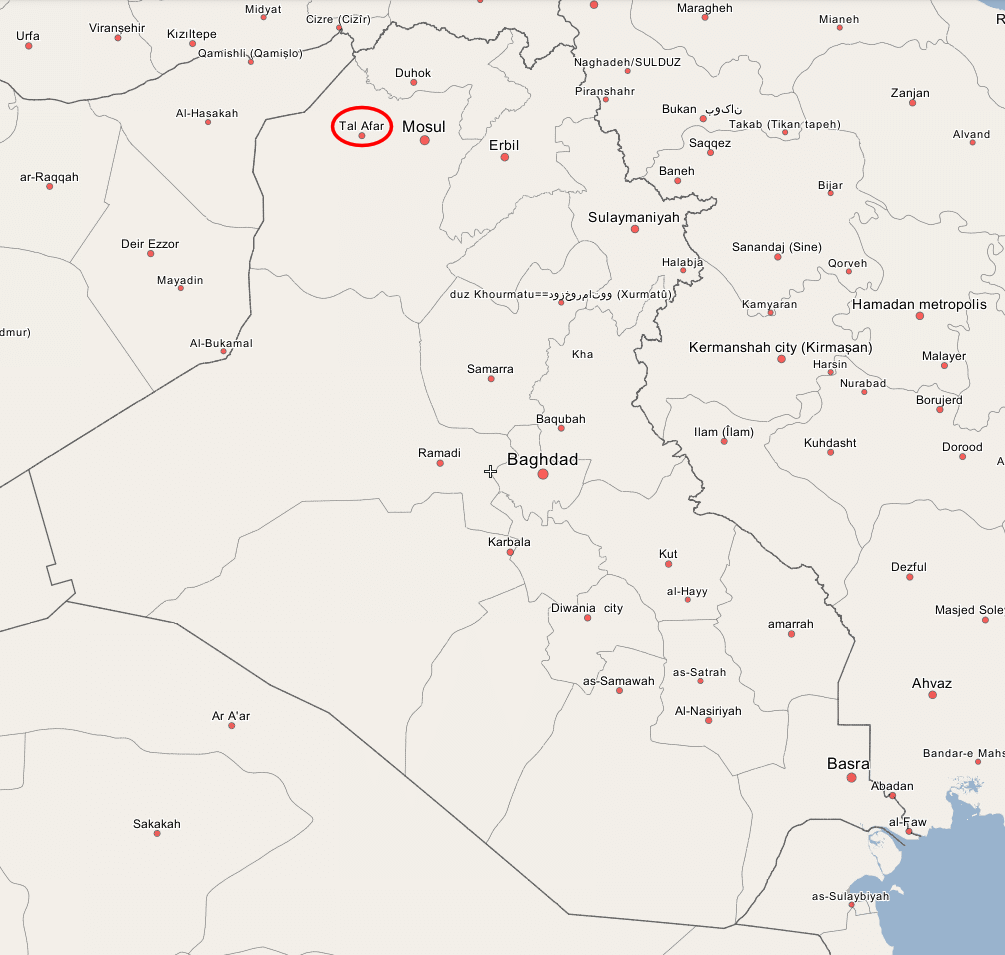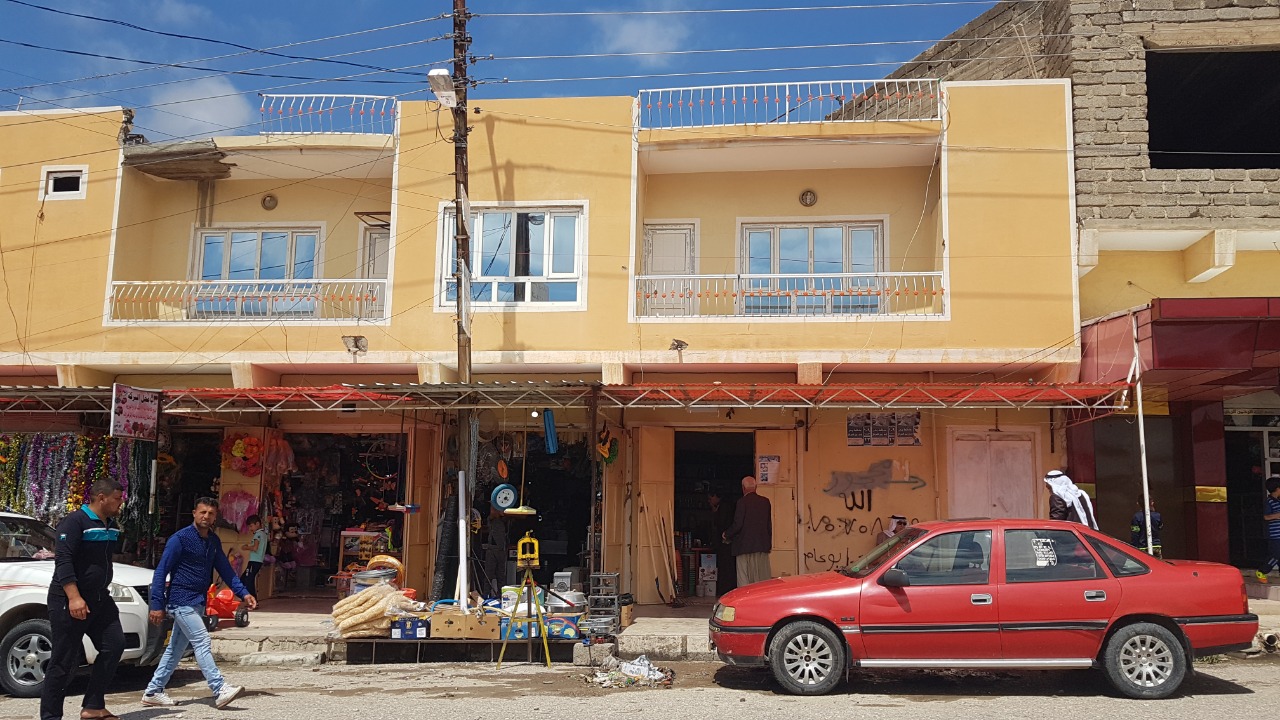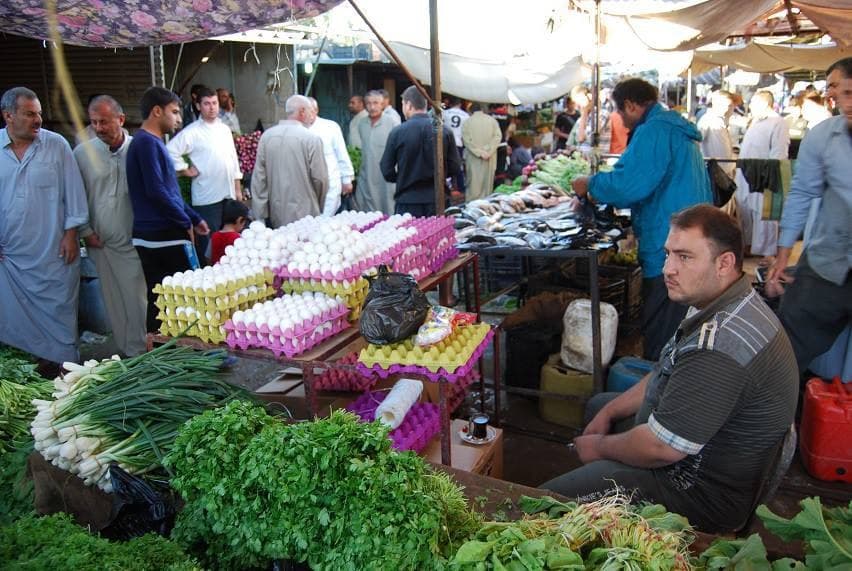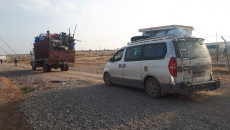“Perhaps every malignant [thing] has benefits [too]. Always look at issues from a positive perspective; for all the hardships we have suffered in the years of displacement from 2014 to 2018, that period had positive aspects which cannot be ignored,” says Nurhan Ali, a repatriated refugee in Tal Afar.
“The displacement years contributed to exposure to other societies, whether for those who were displaced to Iraqi cities or outside the country, as happened to me. So, there is no doubt that mixing with those communities and learning about their experience was a testament for the benefit from it after returning to our areas when they were liberated from ISIS.”
Nurhan was able to learn Turkish during the time she spent there as a refugee.
The Turkmen-majority town of Tal Afar in western parts of Nineveh province fell under the control of ISIS in August 2014, which caused the displacement of most if its near 225,000 inhabitants.

Learning about other cultures
“Displacement has contributed to gaining knowledge on other peoples. I personally didn’t know anything about the people of the Ezidi faith, but when I lived among them for a month when we were displaced to Shingal, before leaving it for Najaf, I learned that they are a peaceful component who didn’t see us being of a different religion. Rather, they quickly extended a helping hand and did not spare any effort in alleviating our suffering,” said Ahmad Badr (36).
“One of the Ezidis could not hold back his tears when he saw us taking shelter in a shop at the start of our displacement, and he insisted we accompany him to his home. And so are the people of Najaf province –about whom I didn’t know much–as they opened the doors of their homes for us and embraced us with hospitality and grace.”
32-year-old Basim Ghazi was a grocer and used to make the bare minimum to feed his 5-member family. He didn’t have any other skills, but he learned a new one while he was displaced in Erbil.
Call for unity and rejection of violence
54-year-old Shihab Nabil, told KirkukNow: “Despite its bitterness, the experience of displacement was enough to convince us of the importance of holding on to our land and the need to be united so that we would not be a target for those who seek to tear us apart to achieve their interests."
Nabil, who was displaced to Kirkuk where he spent nearly five years before returning to Tal Afar by the end of 2019, added: “The people who are aware and loyal were calling for unity, but their calls went unanswered until their voice went silent. But after the axe fell on the head, everyone comprehended the lesson, which we clearly see its impact, for here are the relationships and communication returned to Tal Afar as it was before 2003.”
The Iraqi Ministry of Immigration and Displacement has recently announced the closure of a number of IDP camps in the provinces Karbala, Baghdad, Kirkuk and Nineveh, where the IDPs from Tal Afar were residing.
Learning new skills
“My wish has been to study law since I was in preparatory school, but winds don’t always blow in the direction where ships want to go. Financial difficulties didn’t allow me to fulfil my wish, but also because I couldn’t study at the University of Mosul due to the terrorist attacks and the sectarian violence. But when I was displaced to Diwaniya, I attended the university there and followed evening classes. After four years of working day and night, I gained a law degree,” said 27-year-old Anwar Kadhim with a smile on his face.
Ghazi said: “Displacement has contributed to my personal and professional capabilities, as I learned how to apply wallpaper and install plastic panels on walls and ceilings.”
“Through displacement, we have learned about barbecued fish and now it’s being sold everywhere in Tal Afar. And [previously] gas sellers used to annoy us tremendously, but nowadays they are using pleasant music, something they learned in the cities they were displaced to.”

Numbers from the Iraqi Ministry of Immigration and Displacement confirm the return of dozens of displaced families from Karbala, Baghdad, Erbil, Kirkuk and Turkey to the Tal Afar.
And according to those numbers, a total of 18,500 families are officially registered to have been returned. But the real number of the families that have been returned is estimated to be about 24,000, as many do not register themselves.






